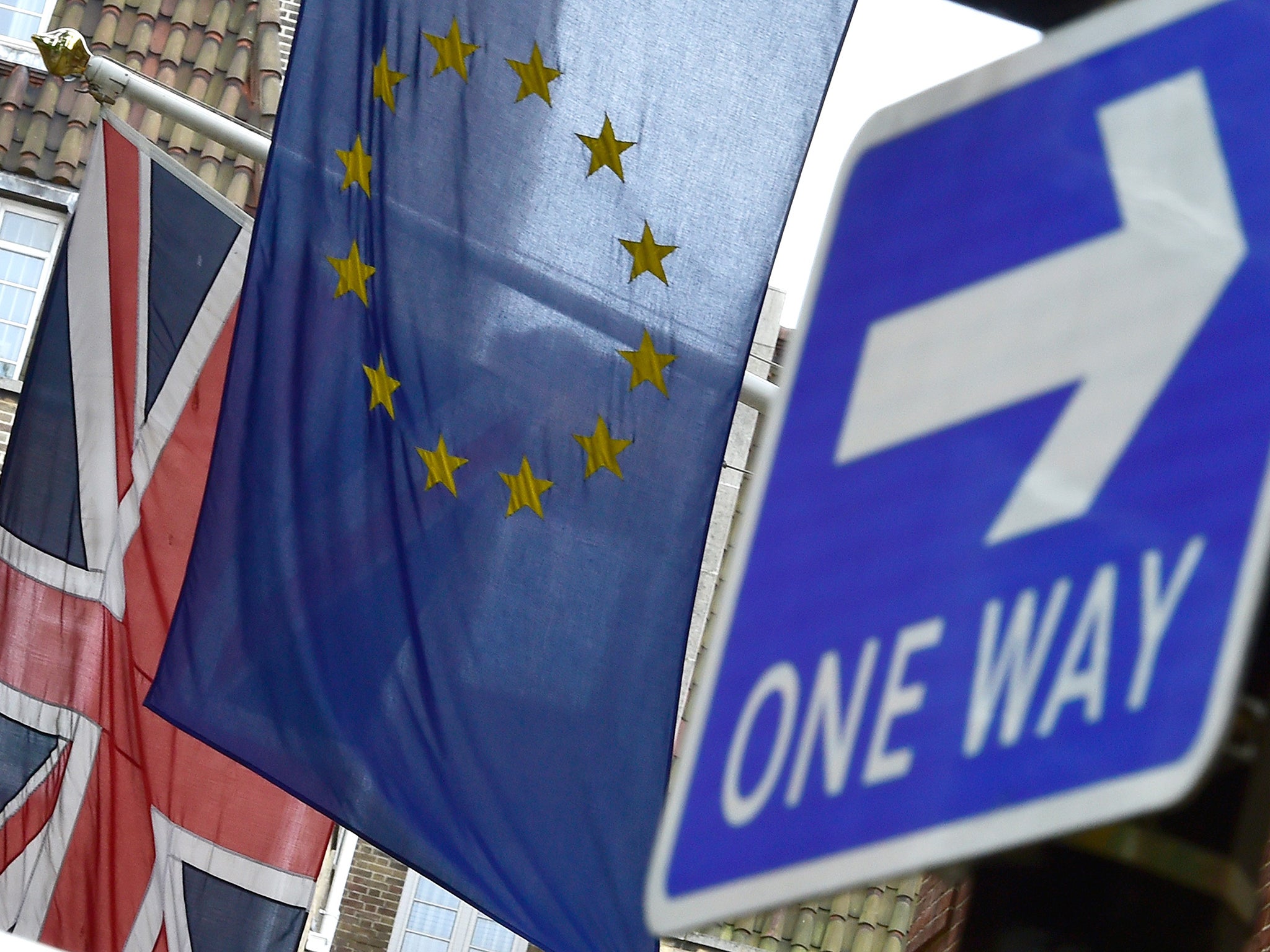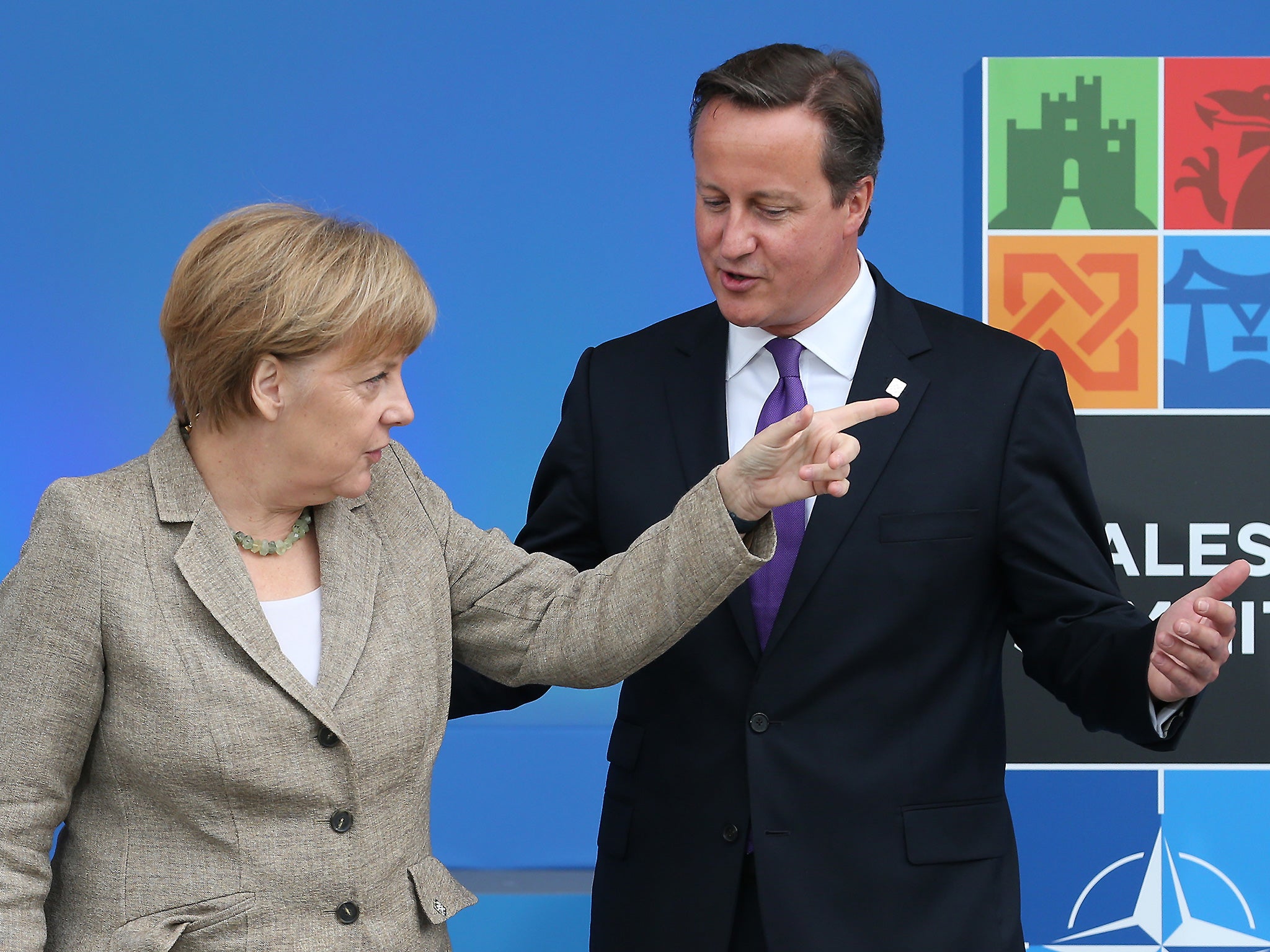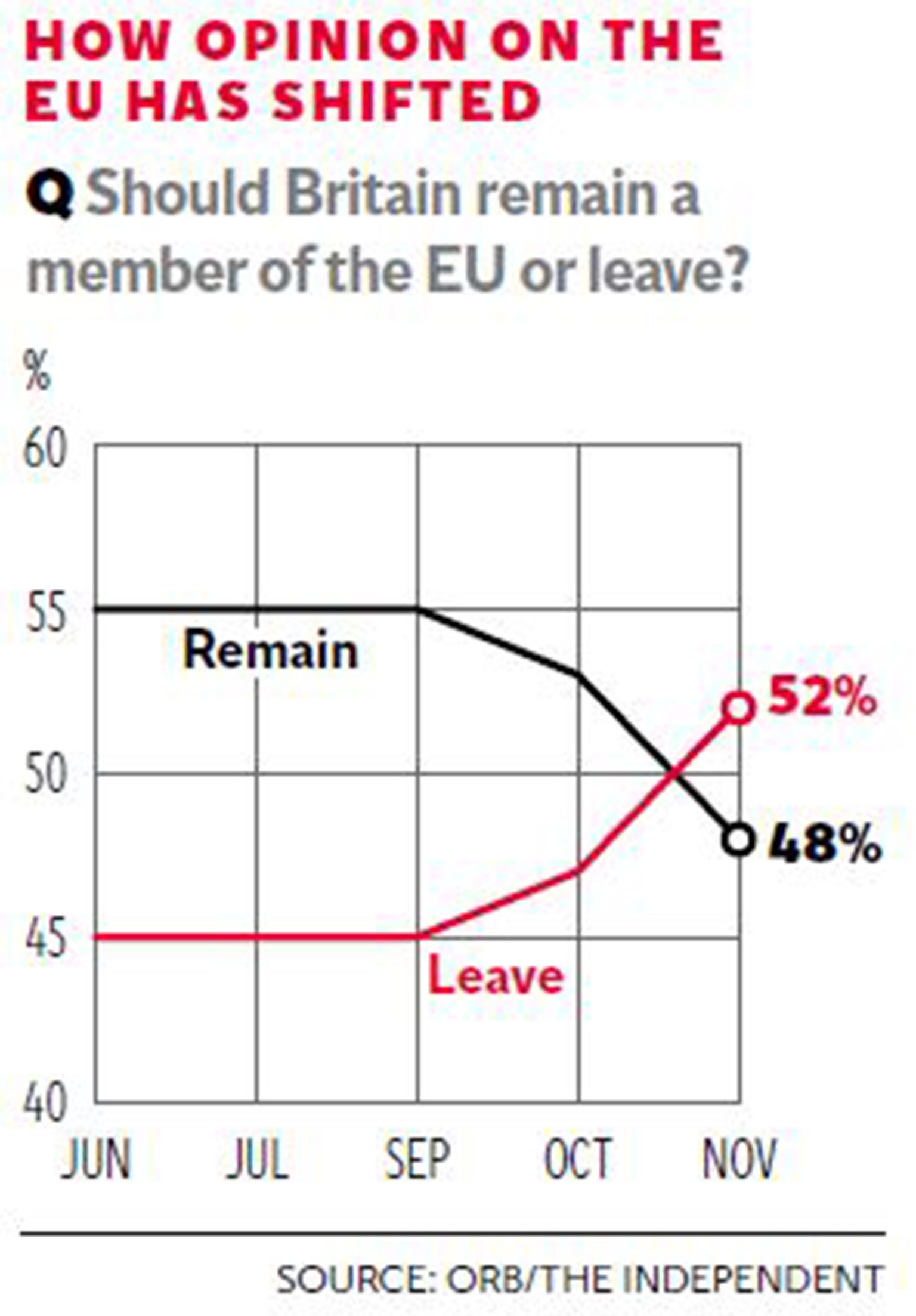EU referendum: Majority of UK public wants 'Brexit', poll reveals
Exclusive: Shift of public opinion in aftermath of Paris attacks will be seen as reflection of anxiety over refugee crisis

Your support helps us to tell the story
From reproductive rights to climate change to Big Tech, The Independent is on the ground when the story is developing. Whether it's investigating the financials of Elon Musk's pro-Trump PAC or producing our latest documentary, 'The A Word', which shines a light on the American women fighting for reproductive rights, we know how important it is to parse out the facts from the messaging.
At such a critical moment in US history, we need reporters on the ground. Your donation allows us to keep sending journalists to speak to both sides of the story.
The Independent is trusted by Americans across the entire political spectrum. And unlike many other quality news outlets, we choose not to lock Americans out of our reporting and analysis with paywalls. We believe quality journalism should be available to everyone, paid for by those who can afford it.
Your support makes all the difference.More than half of the public now want to leave the European Union, according to an opinion poll for The Independent – the first time our monthly survey has shown a majority for “Brexit.”
The survey of 2,000 people by ORB, conducted last Wednesday and Thursday in the wake of the Paris terrorist attacks, will be seen as a reflection of public anxiety about the EU’s migration crisis.
Anti-EU politicians including Nigel Farage have sought to make a link between the influx of Middle Eastern refugees to Europe and terrorism.
Although the poll results show a marked Eurosceptic shift since Paris, In campaigners believe that the outpouring of sympathy in Britain for France over the massacre will help rather than damage the pro-EU cause.
Some 52 per cent of people say Britain should leave the EU, while 48 per cent want to remain.
When ORB asked the same question in June, July and September, a majority (55 per cent) wanted to stay and 45 per cent to quit on each occasion. Last month, amid widespread media coverage of the refugee crisis, the margin narrowed slightly to 53 per cent in favour of staying in, with 47 per cent wanting out.
The latest survey highlights a stark divide between the generations ahead of the in/out referendum to be held by the end of 2017. Some 69 per cent of 18-24 year-olds want to remain in the EU, while only 31 per cent want to leave. Support for EU membership declines steadily with age among older groups, with only 38 per cent of those aged 65 and over wanting to remain and 62 per cent in favour of leaving.

A majority of the AB and C1 top two social groups want the UK to stay in the 28-nation bloc, but there is a majority in favour of leaving among the C2 skilled manual workers and bottom DE group.
Support for EU membership is highest in Scotland (60 per cent) and Wales (56 per cent) and at its lowest in the South West (40 per cent) and Eastern England (43 per cent).
Some 54 per cent of people who voted Conservative at the May election want to leave the EU, as do 93 per cent of Ukip voters. But a majority of Labour, Liberal Democrat, SNP and Green supporters want to remain.
The respondents were given the choice only of the two options which will appear on the referendum ballot paper, to remain or leave. Previous data suggests that the level of undecided voters in the UK is currently around 18 per cent.
The overall findings will worry pro-EU campaigners, who admit privately that the refugee crisis is shifting opinion against membership. There are also fears that the Out campaign, funded heavily by hedge funds opposed to EU regulation, enjoys a much bigger budget than the In brigade. “We will have less but are much more likely to spend it better,” said one In camp insider, promising a professional effort than its rivals.

However, Eurosceptics believe the In team looks “part of the establishment” and say that Dominic Cummings, the former Michael Gove aide in charge of the Out camp, is running a clever “insurgent” campaign.
The co-author of a new book on Ukip believes the migration crisis could boost the Out campaign by making immigration and identity key issues in the referendum. “Immigration is central to Euroscepticism in Britain,” said Matthew Goodwin, Professor of Politics at Kent University. He found that voters who believe that immigrants impact negatively on the economy, welfare state and culture are 16 times more likely to back “Brexit” .
Professor Goodwin said: “The recent eruption of the refugee crisis and ongoing public concern over net migration have likely sharpened these anxieties even further, pushing Britain closer to the prospect of Brexit.”
His book, written with Caitlin Milazzo of Nottingham University, argues that immigration could be a key referendum issue for the critical group – the 18 per cent of people who have not yet decided how to vote. Interviews with 30,000 voters for the British Election Study found that the “undecideds” are “significantly more likely than Inners to hold negative feelings about immigration, and also… more likely to feel dissatisfied with how democracy is currently working within the EU.”
The authors add: “While they might not have liked Farage, much will ultimately depend upon whether their distaste for the Ukip leader outweighs their dissatisfaction with the EU.”
Although it could still be very difficult for the Outers to win, the book says that Ukip could emerge from the referendum with “a stronger relationship with those voters who feel anxious over identity-related issues.”
“Ukip: Inside the Campaign to Redraw the Map of British Politics” by Matthew Goodwin and Caitlin Milazzo is published on Thursday by OUP.
Join our commenting forum
Join thought-provoking conversations, follow other Independent readers and see their replies
Comments